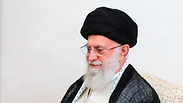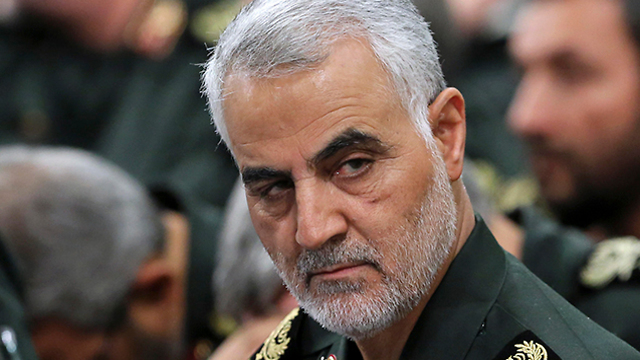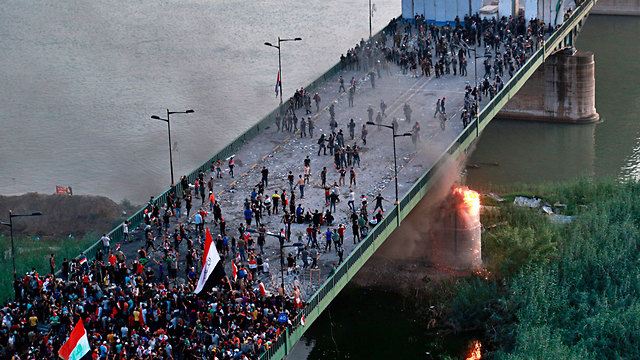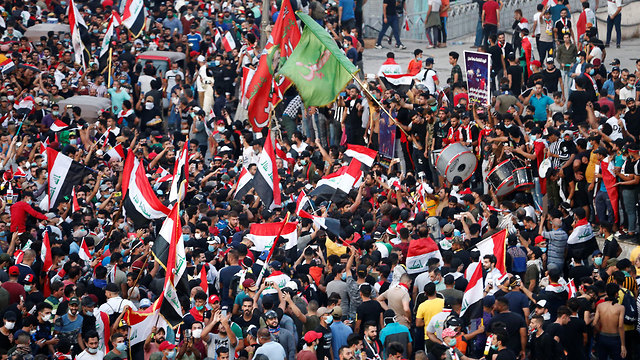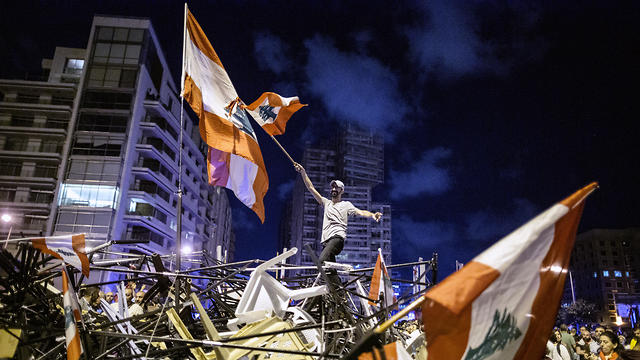Tehran dispatched General Qasem Soleimani, from the Revolutionary Guards Quds Force, to Bagdad for meetings with local security officials.
Soleimani arrived by helicopter to the "Green Zone" where government offices and foreign diplomatic missions are located.
His arrival was meant to strengthen the Iraqi government which has been favorable to Iran.
Anti-government protests in Iraq have picked up momentum in recent days, with a reported 100 people killed and over 5,000 injured since Friday.
The protests were sparked over deteriorating living conditions, soaring unemployment and corruption.
Demonstrations have occurred in Shiite-majority areas and have been directed at the Shiite-dominated government and political parties often supported by Iran.
In Lebanon, Iranian backed Hezbollah has been unable to sway resigning Prime Minister Saed Hariri from his decision to step down.
Hariri resigned amid growing protests against the rampant corruption of the political class that has collectively led Lebanon into a major economic crisis.
Hariri's resignation has left a political vacuum, though the prime minister had agreed to Lebanese President Michel Aoun's request to stay at the helm of a caretaker government.
On Wednesday, Iranian supreme leader Ayatollah Ali Khamenei blamed Saudi Arabia the United States and Israel for spreading " insecurity and turmoil".
Iraqi and Lebanese protesters have been corresponding and supporting each other's causes over WhatsApp.













